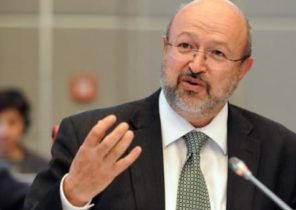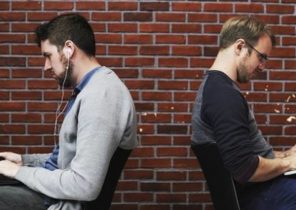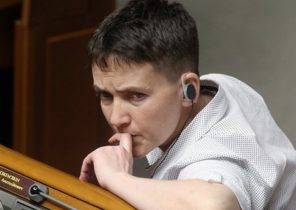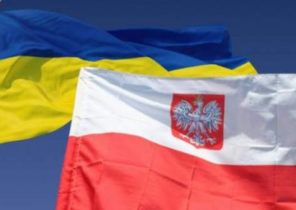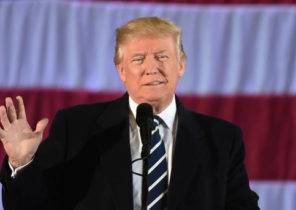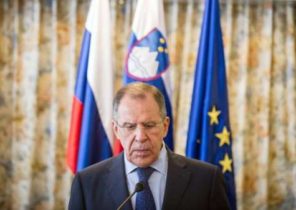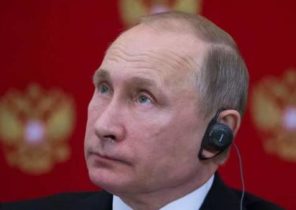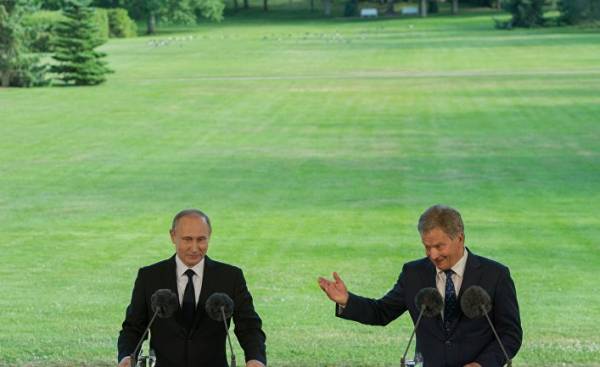
The President of Russia Vladimir Putin will visit Finland on 27 July and will visit the city of Savonlinna. The visit is timed to the celebration of the 100th anniversary of Finland’s independence.
The relationship between the EU and Russia is far from ideal, and despite the anniversary of Finland year, presidents will have to discuss, in particular, and not the most pleasant questions, says former Ambassador of Finland in Moscow Hannu Himanen (Hannu Himanen).
“The jubilee year of Finland may affect the style of the speeches of presidents to the press and their comments to the media,” Himanen says.
One of the hard ones for presidents — the situation in Ukraine. Recently the press reported that the fighting in the region resumed.
According to Himanen, the diplomatic process of implementing the Minsk agreements is now at a critical stage.
“France and Germany, which are in this process, the European Union got into an interesting situation. In France the President has changed, and in Germany this fall elections should take place,” says Himanen.
The US President Donald trump (Donald Trump) has appointed a special representative for Ukraine.
“It’s hard to talk about the overall effect of these changes.”
Professor of international politics University of Tampere Pami Aalto (Aalto Pami) said that during the visit the presidents just have to raise the issue of Ukraine, although no one wants to talk about it.
“First of all, because Ukraine is the most important reason why the Baltic sea region is now so frequently held exercises,” says Aalto.
According to Aalto presidents can discuss aspects of the tension associated with the security policy in the Baltic sea region, based on their own interests.
Russia was interested in the teachings of Finland and NATO, which were held more often.
In the autumn Russia will spend a record-scale military exercises “West”. At the same time, Sweden will conduct exercises Aurora.
According to Himanen, the question of how to avoid the conflict became even more urgent than before.
The Director the Alexander Institute Markku Kivinen (Markku Kivinen) recalls the explanation of exercises. In his opinion, for anybody not a secret that during the exercise, Russia is rehearsing a reflection of the impact of NATO — and Vice versa.
“The worrying thing is the idea that the situation may worsen due to the fact that in the Baltic sea will host a lot of military equipment,” — says Kivinen.
Last July, the President of Finland Sauli Niinistö (Sauli Niinistö) invited Putin to turn on transponders while in flight over the Baltic sea to improve security in the region.
Kivinen believes that the dialogue between the presidents will begin with an assessment of the international situation. Niinistö is likely to be interested in the meeting between Putin and trump and the countries ‘ relations after the summit “Big twenty” in Hamburg.
“The international situation is very dependent on the relations between the US and Russia, and therefore the exchange of opinions is very important for Finland. I think Niinistö will mostly have to listen to Putin,” says Kivinen.
Pami Aalto believes that Putin will want to ask Niinistö on Breccia and the development of the EU.
“Russia is more difficult to see, understand and to foresee the development of the EU. Russia is interested in the weaknesses of the EU on which it could hit. Who among EU members diverge in opinion with the rest if it matches the views of all members of the EU in matters of defense, monetary system and Brexia,” says Aalto.
According to the Kremlin, during the visit, dedicated to the 100th anniversary of Finland, will be discussed not only international issues, but also issues of bilateral trade and cooperation in the field of ecology.
A few years ago it seemed that Russia ceased to occupy an important place in the foreign policy of Finland. The country, however, continues to be interested in the Russian market. The scope of Russian-Finnish tourism also began to recover.
Chief research officer, Institute of foreign policy of Finland Arkady Moshes believes that Putin is particularly interested in regional and bilateral issues. However, the topic of economic sanctions, in his opinion, is unlikely to rise.
Recently, the EU extended sanctions against Russia by six months, from counter refuses and Russia. At the moment Russia does not even raise this issue and accuses the situation of the countries of the West.
The situation could be resolved, respecting the Minsk agreement. The Moshes believes that the resolution of this issue in the near future are not likely to move.
“Now is not the time to talk about sanctions,” he says.
According to Aalto, Finland usually does not speak about sanctions during bilateral meetings with Russia.
Because now Finland is the chair of the Arctic Council, an important topic may be the climate and the environment — especially after the US withdrawal from the Paris climate agreement.
According to Aalto, in the near future, the Arctic region is unlikely to happen as many events as anticipated a few years ago.
“The development of this region is very expensive. The same natural resources can be found in other regions, and now there is such an urgent need,” says Aalto.
